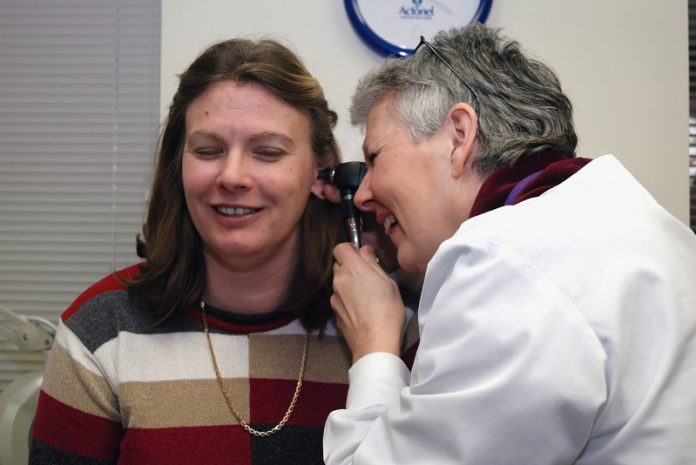
Tinnitus, most often described as “ringing” in the ears even though no external sound is present, also can be perceived as humming, hissing, buzzing, or roaring sounds.
According to the United States Centers for Disease Control and Prevention (CDC), more than 50 million Americans experience some form of tinnitus—2 million have extreme and debilitating cases.
Worldwide, about 30 percent of people will experience tinnitus at some point in their life.
Many individuals impacted by COVID-19 experienced changes in their sense of smell, taste, hearing, balance, and in some cases, tinnitus.
Among the various causes of tinnitus is stress, including tension, anxiety, and depression.
What’s unclear, however, is whether the psychological impacts of the pandemic such as stress actually worsened tinnitus and its impacts.
In a new study from Florida Atlantic University and others, researchers try to reveal the potential indirect effects of COVID-19 on the experience of tinnitus.
They assessed whether the severity of tinnitus, as measured using ratings of tinnitus loudness, annoyance, and effect on life, was influenced by the lockdown related to the pandemic.
Although COVID-19 upended so many aspects of society, there is some good news—at least as it relates to tinnitus.
The findings of the study do not support the idea that the pandemic led to a worsening of tinnitus loudness, annoyance, or impact on life and the mean scores did not differ significantly for the groups seen prior to and during the lockdown.
Any changes in psychological well-being or stress produced by the lockdown did not significantly affect ratings of the severity of tinnitus.
The findings suggest that it is possible pandemic-related factors exacerbate the experience of tinnitus, as tinnitus is linked to general anxiety and psychological well-being.
If you care about COVID, please read studies about new risk factor for severe COVID-19, and the key to curing COVID-19.
For more information about health, please see recent studies that COVID patients on this depression drug are less likely to die, and results showing that COVID-19 booster shots prompt stronger, longer protection than original shots.
The study was conducted by Hashir Aazh et al., and published in the Journal of the American Academy of Audiology.



